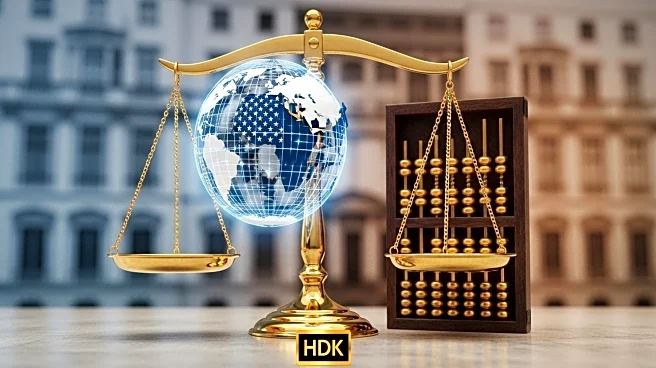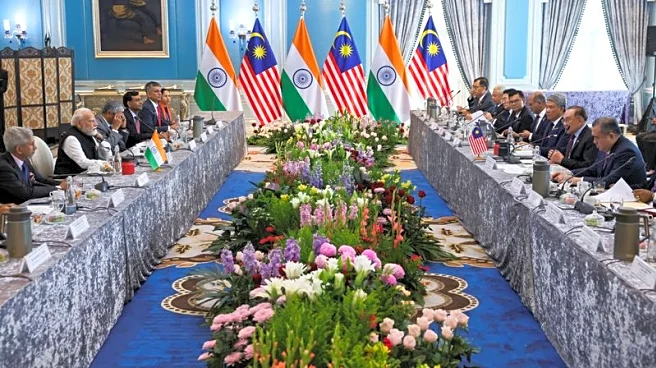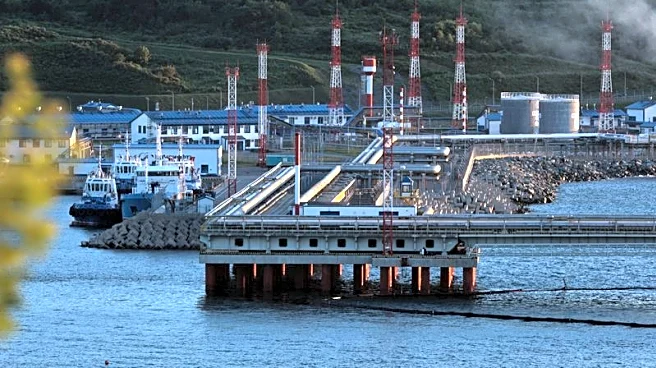What is the story about?
What's Happening?
Nicolas Dufourcq, head of France's state investment bank Bpifrance, has expressed concerns over Europe's economic position, stating that the continent is being 'doubly colonized' by U.S. technology and Chinese industry. He highlighted the challenges faced by European startups, such as French quantum computing company Quandela, which struggles to secure private capital despite having competitive technology. Dufourcq criticized Europe's investment culture, which favors conservative assets and U.S. tech over local innovators, contributing to the continent's economic decline.
Why It's Important?
Dufourcq's warning underscores the urgent need for Europe to invest in its own technological and industrial sectors to avoid falling behind global competitors. The lack of investment in homegrown innovation could lead to long-term economic stagnation and loss of technological leadership. This situation presents a significant challenge for European policymakers and investors, who must balance risk aversion with the need to support high-growth sectors. The outcome of this issue could impact Europe's economic sovereignty and its ability to compete on the global stage.
What's Next?
Europe may need to reassess its investment strategies and cultural attitudes towards risk to foster a more supportive environment for local startups. Increased collaboration between public and private sectors could be necessary to drive investment in critical industries. Policymakers might consider implementing incentives to encourage investment in European tech and industrial sectors, potentially leading to a shift in capital allocation priorities.
Beyond the Headlines
The situation highlights deeper cultural and economic divides between Europe and other regions, particularly the U.S. The reluctance to invest in high-risk ventures may reflect broader societal attitudes towards innovation and entrepreneurship. Addressing these cultural barriers could be key to revitalizing Europe's economic prospects and ensuring its competitiveness in the future.
















